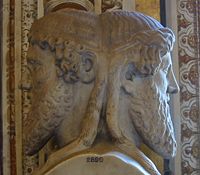Letter to the Brethren: December 28, 2023
Dear Brethren and Co-Workers in Christ:
Greetings from Grover Beach, California.
Last Sabbath, I finished the third of a three part sermon series on what Herbert W. Armstrong called the “seven laws of success.”

Here are links to the three sermons:
Succeeding in this life and the next is crucially important. Success was a topic that helped develop my interest in the Church of God five decades ago.
Youth Camps, Mozambique, Malawi, and Kenya
Evangelist Evans Ochieng reported that 290 attended the youth camp in Migowi, Malawi last week with Sosten Libungwa. Here is a photograph of the group he sent:
Sosten Libugwa also reported that that camp went well.
Radson Mulozowa sent the following report related to Evans Ochieng’s trip as well as the other youth camp in Malawi:
Let me inform you that when pastor Evans visit Malawi he visited the following places1. MWANZAWe met with brethren at sambandele house and the meeting was so good and after the meeting we went to hapuwani hotel inorder to sleep close to Mozambique2. MOZAMBIQUEOn Tuesday we went to Mozambique to meet the brethren and some chiefs who welcome us with joy.3. NJENJETEOn Wednesday we went to NJENJETE to meet the brethrenYOUTH CAMP MEETINGThursday and Friday we had a wonderful meeting where by the youth we so happy and they have begged that next year we must do it for seven days. The youth who attended were 320 youthThe meeting ended wellOn sabbath we went to chileka to keep sabbath and it was a wonderful day loaded with blessingsAll the places we went there challenges of hunger, places of meetingSince Mozambique has grown more than expected and some places are far and he can’t use bicyclethere is a need for Deacon Masenga to have motorcycle .pray for thatPastor Evans has left Malawi today and he called me that he has arrived well in Nairobi and is on the way to homeThanks for the support to us that has make everything possible both Malawi and MozambiqueMay bless God bless youBest regardsRadson
Radson Mulozowa’s children were with the CCOG in our youth camp with their father. We are also looking to see how to better assist those with hunger in Malawi and Mozambique (cf. Galatians 2:10; James 2:14-16).
Not counting those who recently came back to the CCOG with Sosten Libungwa, we have almost 3200 in Malawi and Mozambique in the CCOG. Plus we have about 5500 in the rest of Africa.
Youth camps were also held in Kenya. Pastor Tiongik Sawek sent the following:
Receive greetings in Jesus name. We had a wonderful youth camp and it ended successfully. The visitors are still leaving for their homes. The youth groups that were in Chilani learned a lot. I have received a report from North Rift headed by Elder Cheruiyot that they did their meeting well. The brethren from Mau and Bomet did their youth camp well also. These meetings have led to growth of youths in our churches and those that are already in the church are learning a lot. We are grateful to Evangelist Ochieng for arranging the meetings together although he was in Malawi. We also thank the Continuing Church of God for the cooperation and also for allowing the youths camps to be successful. It will be good enough if the new Church is built at Chilani and this will allow them to do the meeting. We will therefore use the old church as rooms that they will stay in the meeting. I will attach the photos of the same. God bless you.
Regards
Pastor Sawek.
We also had a youth camp in Got Kachola, Kenya. Evngelist Evans Ochieng sent the following:
Pastor Dr Bob,
Greetings from Kenya.I attended the youth camp in Kenya at Got Kachola. I was very happy how youth camp was organized in the camp. Youths choose to be in uniform that promotes and identity continuing church of God. This is very important and we pray next year if all youths worldwide can have the uniforms in every youth camp
The youths were very happy and they flowered the camp highly. The youths attached many subjects including what’s ahead of our children.
So the youth camp was very well done and they were totally disciplined. It shows up the Best and improved Continuing Church of God. I saw some good work in YOUTH CAMP in Malawi and Mozambique. Same to Kenya. When it happens like this, will make church of God to continue even to the next generation. If children are not well taught, then the church will not have good future and growth. But if we continue teaching our youths the ways of God and His commandments then we shall have bright future of the church.
I’m very happy and continue to pray for our youths to learn more about the kingdom of GOD and the resurrection of the first fruits. May the Almighty God bless overseer and president of the church Dr Bob and brethren who are always supporting the YOUTH CAMP.
We are seeing good and perfect growth with in the church.
Evans.
In the end time, we are to work to, “turn the hearts of the fathers to the children, and the hearts of the children to their fathers” (Malachi 4:6). Youth camps are just one way to help do that.
Whose New Year will many be Celebrating?

Roman God Janus in Vatican Museum
Since God does not begin His new year on January 1st, what is the origin of January 1st and New Year’s?
Back in 46 B.C., Julius Caesar declared that January 1st would mark the beginning of the new year. January was named after Janus, the god of gates and doors in Roman mythology. People prayed to Janus when they wanted something new in their lives (such as resolutions). Janus is normally represented with two faces, one looking to the past and the other looking to the future (the two faces also signified change that Janus would supposedly bring in, see Burchett B, Janus in Roman life and cult: a study in Roman religions, p. 15). The first day of the month of January was sacred to him.
January first is Julius Caesar’s and Janus’ New year.
It did not come from the Bible.
Nor did the related resolutions.
Notice what the historian Tertullian wrote about winter celebrations, such as Saturnalia, in the late second century:
The Minervalia are as much Minerva’s, as the Saturnalia Saturn’s; Saturn’s, which must necessarily be celebrated even by little slaves at the time of the Saturnalia. New-year’s gifts likewise must be caught at, and the Septimontium kept; and all the presents of Midwinter and the feast of Dear Kinsmanship must be exacted; the schools must be wreathed with flowers; the flamens’ wives and the aediles sacrifice; the school is honoured on the appointed holy-days. The same thing takes place on an idol’s birthday; every pomp of the devil is frequented. Who will think that these things are befitting to a Christian master, unless it be he who shall think them suitable likewise to one who is not a master? (Tertullian. On Idolatry, Chapter X. Translated by S. Thelwall. Excerpted from Ante-Nicene Fathers, Volume 3. Edited by Alexander Roberts and James Donaldson. American Edition, 1885. Online Edition Copyright © 2004 by K. Knight).
But, however, the majority (of Christians) have by this time induced the belief in their mind that it is pardonable if at any time they do what the heathen do, for fear “the Name be blasphemed”…To live with heathens is lawful, to die with them is not. Let us live with all; let us be glad with them, out of community of nature, not of superstition. We are peers in soul, not in discipline; fellow-possessors of the world, not of error. But if we have no right of communion in matters of this kind with strangers, how far more wicked to celebrate them among brethren! Who can maintain or defend this?…By us,…the Saturnalia and New-year’s and Midwinter’s festivals and Matronalia are frequented–presents come and go–New-year’s gifts–games join their noise–banquets join their din! Oh better fidelity of the nations to their own sect, which claims no solemnity of the Christians for itself!…Not the Lord’s day, not Pentecost, even if they had known them, would they have shared with us; for they would fear lest they should seem to be Christians. We are not apprehensive lest we seem to be heathens! (Tertullian. On Idolatry, Chapter XIV. Translated by S. Thelwall. Excerpted from Ante-Nicene Fathers, Volume 3. Edited by Alexander Roberts and James Donaldson. American Edition, 1885. Online Edition Copyright © 2004 by K. Knight).
But “let your works shine,” saith He; but now all our shops and gates shine! You will now-a-days find more doors of heathens without lamps and laurel-wreaths than of Christians. What does the case seem to be with regard to that species (of ceremony) also? If it is an idol’s honour, without doubt an idol’s honour is idolatry. If it is for a man’s sake, let us again consider that all idolatry is for man’s sake; let us again consider that all idolatry is a worship done to men, since it is generally agreed even among their worshippers that aforetime the gods themselves of the nations were men; and so it makes no difference whether that superstitious homage be rendered to men of a former age or of this. Idolatry is condemned, not on account of the persons which are set up for worship, but on account of those its observances, which pertain to demons (Tertullian. On Idolatry, Chapter XV. Translated by S. Thelwall. Excerpted from Ante-Nicene Fathers, Volume 3. Edited by Alexander Roberts and James Donaldson. American Edition, 1885. Online Edition Copyright © 2004 by K. Knight).
What Tertullian seems to be saying is that observing New Year’s celebrations make Christians appear to be followers of pagan gods, and since the pagans would not intentionally celebrate days considered by many to be Christian, Christians should not celebrate days that are honored by the heathen. Specifically, he felt that those who profess Christ should not celebrate New Year’s or other pagan days, as even the observance is a form of idolatry. New Year’s was also observed in honor of the goddess Strenua/Strenia, the goddess of purification and well being. It may partially be because of her that New Year’s resolutions and vows are made.
The Bible teaches:
19 What am I saying then? That an idol is anything, or what is offered to idols is anything? 20 Rather, that the things which the Gentiles sacrifice they sacrifice to demons and not to God, and I do not want you to have fellowship with demons. (1 Corinthians 10:19-20)
New Year’s clearly has demonic origins.
The Catholic Encyclopedia reports:
Christian writers and councils condemned the heathen orgies and excesses connected with the festival of the Saturnalia, which were celebrated at the beginning of the year: Tertullian blames Christians who regarded the customary presents — called strenae (Fr. étrennes) from the goddess Strenia, who presided over New Year’s Day (cf. Ovid, Fasti, 185-90) — as mere tokens of friendly intercourse (De Idol. xiv), and towards the end of the sixth century the Council of Auxerre (can. I) forbade Christians strenas diabolicas observare. The II Council of Tours held in 567 (can. 17) prescribes prayers and a Mass of expiation for New Year’s Day, adding that this is a practice long in use (patres nostri statuerunt). Dances were forbidden, and pagan crimes were to be expiated by Christian fasts (St. Augustine, Serm., cxcvii-viii in P.L., XXXVIII, 1024; Isidore of Seville, De Div. Off. Eccl., I, xli; Trullan Council, 692, can. lxii). (Tierney, John. “New Year’s Day.” The Catholic Encyclopedia. Vol. 11. New York: Robert Appleton Company, 1911. 27 Dec. 2011 <http://www.newadvent.org/cathen/11019a.htm>)
The expression strenas diabolicas observare roughly translates from Latin to “observing the new time of the Devil.” It is likely that New Year’s resolutions are related to the purification and well being attributes of the pagan goddess. So, while a Roman Catholic council forbade the devil’s new year, many nowadays observe it.
Thus although many would be surprised to learn this, the celebration of New Year’s was originally opposed by claimed “Christian writers” according to the Church of Rome. Hence, it definitely should not be considered to be an original apostolic practice or even early tradition for the Catholics of Rome.
New Year’s day did not become a holy day for the Roman Catholic Church until 487 A.D. when it was declared to be the Feast of the Circumcision (though it may have been also observed in the fourth century, but other sources suggest eighth century or later dates):
Our “New- Year’s Day, “the “Feast of the Circumcision,” was called the octave of Christmas as early as 487, AD, and was instituted by the Church to commemorate the ceremony of the Jewish law which the Saviour submitted. In the time of Numa the old Roman heathens dedicated the day to Janus, the double-faced deity…(Savage J., editor. The Manhattan and de la Salle monthly. New York Catholic Protectory, 1875 Original from the New York Public Library Digitized Jul 13, 2006, p. 2)
The Feast of the Circumcision has been observed in the Roman church since 487 and in the Anglican church since 1549. (Douglas GW, Compton HD. The American book of days: a compendium of information about holidays, festivals, notable anniversaries and Christian and Jewish holy days, with notes on other American anniversaries worthy of remembrance. H. W. Wilson Co., 1957 Original from the University of California Digitized Sep 25, 2008, p. 2)
This gave the Greco-Roman Catholic, as well as Anglican, churches an eight-day festival with a ‘holy day’ at the beginning and the end, similar in that respect to the Feast of Tabernacles (Leviticus 23:34-35). It was determined that if Jesus was born on December 25th (even though he could not have been), since he was circumcised eight days later (Luke 2:21), he would have been circumcised on January 1st, hence the rationale for New Year’s being ‘the Feast of the Circumcision.’
It should be added that there is no indication in the Bible that Jesus’ circumcision should be celebrated.
So, how is New Year’s celebrated? Well customs do vary around the world. Various cultures believe that meeting with people, eating certain foods, or consuming certain drinks will help insure good luck for the year.
In the 1700s, notice a poem that was written to and about Janus from The poetical works of Jonathan Swift, Volumes 2-3, By Jonathan Swift, John Mitford, p. 120:
TO JANUS, ON NEW YEAR’S DAY, 1726.’
Two-faced Janus, god of Time!
Be my Phoebus while I rhyme;
To oblige your crony Swift,
Bring our dame a new year’s gift;
She has got but half a face;
Janus, since thou hast a brace,
To my lady once be kind;
Give her half thy face behind.God of Time, if you be wise,
Look not with your future eyes;
What imports thy forward sight?
Well, if you could lose it quite.
Can you take delight in viewing
This poor Isle’s 2 approaching ruin,
When thy retrospection vast
Sees the glorious ages past?
Happy nation were we blind,
Or had only eyes behind!
So, some consider Janus to be the “God of Time”–but no real Christian would.
It seems, though, that Janus could have been mainly a side issue for the year to start then:
The connection between Janus and the ceremonies of January first may be still further illustrated by these lines from the Carmina Tria de Mensibus:
Hie Iani mensis sacer est: en aspice ut aris tura micent, sumant ut pia liba Lares. Annorum saeclique caput, natalis honorumpurpureos fastis qui numerat proceres.
which may mean, “This is the sacred month of January—sacred because of the ceremonies. January is the beginning of the year, because the purple-clad chiefs date their office from that month.” Although Janus is used here only as a personification of his month, yet some sanctity is reflected to the god himself from the ceremonies of the day. From the lines just quoted, it seems evident that Fastorum genitor parensque* means only, “Janus, i. e. January, is the beginning of the year, a fact to be emphasized by patriotic Romans, because the consuls assumed, or renewed, office on January first.” (Janus in Roman life and cult: a study in Roman religions … By Bessie Rebecca Burchett, p. 15)
In the US and many other Western cultures, vows called New Year’s resolutions are often made. From this authors research, while repentance is a good thing, he believes that this custom of resolutions is similar to the prayers made to Janus regarding desiring something new. According to most available research, most people break their New Year’s resolutions. Hopefully they are not making them before the true God whose word says, “When you make a vow to God, do not delay to pay it; for He has no pleasure in fools. Pay what you have vowed–Better not to vow than to vow and not pay. Do not let your mouth cause your flesh to sin, nor say before the messenger of God that it was an error. Why should God be angry at your excuse and destroy the work of your hands?” (Ecclesiastes 5:4-6).
Another activity which occurs in the US and elsewhere on New Year’s is heavy drinking of alcohol. Many who go to New Year’s parties get drunk. The Apostle Paul warned Christians, “Do not be drunk” (Ephesians 5:18).
A reader sent me the following:
Why on earth do Germans call New Year Silvester?No your friend isn’t planning to ring in the New Year with someone named Sylvester instead of you. Silvester is the German name for New Year’s Eve – owing to the fourth century Pope Sylvester I. Eventually made a saint by the Catholic Church, his feast day is observed on December 31.
St. Sylvester’s day became associated with New Year’s Eve with the reform of the Gregorian calendar in 1582, when the last day of the year was fixed at December 31. But despite the holiday’s Christian name, many German New Year’s traditions can be traced back to the pagan Rauhnächte practices of heathen Germanic tribes, which took place at the end of December and beginning of January.
Instead of recognizing a single day as the winter solstice, the Germanic tribes observed twelve Rauhnächte – hairy nights, so called due to the furry forms of the deep winter demons – or Rauchnächte – smoky nights, due to the practice of smoking the spirits out of one’s house on January 5. …
As in many other countries, the Germans celebrate Silvester with fireworks, champagne, and boisterous social gatherings. Making noise is key: the ruckus of fireworks, firecrackers, drums, whip-cracking and banging kitchen utensils has been driving away evil winter spirits since the days of the Germanic Teutons. One of the most famous German firework displays takes place at the Brandenburg Gate in Berlin. Private celebrations with Böllern (firecrackers) are also common. …
The Rauhnächte were also a time when the future for the New Year could be divined. Silvester in Germany still calls for oracle traditions, which often take the form of party games. Bleigießen (lead pouring) is the most popular Silvester fortune-telling tradition. Party-goers melt small lead forms with a candle in an old spoon and pour them into cold water. The lead hardens into a shape that supposedly bears a certain meaning for the New Year. An eagle, for example, indicates career success, while a flower foretells that new friendships will develop. …
For those who go out on Silvester, good luck charms and New Year’s greetings are often exchanged. Acquaintances may give good luck charms to each other in the form of ladybugs, four-leaf clovers, horseshoes and pigs. The phrase Guten Rutsch! is another common Silvester greeting. While many Germans now use it to wish someone a good “slide” into the new year, the word Rutsch more likely comes from the Yiddish word Rosch – which means beginning or head. https://www.thelocal.de/20161230/16425
Anyway, this is NOT a Christian holiday.
When speaking of the Hebrew month of Abib, which occurs around late March/early April God declared,
“This month shall be your beginning of months; it shall be the first month of the year to you” (Exodus 12:2).
January 1st is not the beginning of the year for the true God, but only of certain false gods. The last biblical new year actually began at sunset March 22, 2023.
Now perhaps it should be mentioned that other cultures also accept that the new year begins in the Spring. And while those cultures have various non-biblical practices, it is certainly possible that because God’s year begins in the Spring that perhaps anciently these people were aware of it, and retained the correct season, but not the practices.
Not all have followed the practices of Julius Caesar (called “Julie” below):
For some thousands of years before Julie and the Roman Senate got involved, the new year was celebrated with the first edible crops of the season or the first new moon.
In much of India, Nava Varsha is celebrated in March or April, just as in the most ancient civilizations.
Sikhs celebrate Hola Mohalla in March; ditto for Persian Nowruz.
As celebrated in China and southeast Asia, Lunar New Year still has a floating date, the first day of the first lunar month. (Shore R. Pagan Party: New Year’s traditions that hail from the depths of antiquity The Vancouver Sun, Canada – Dec 26, 2008, http://www.vancouversun.com/Pagan+Party+Year+traditions+that+hail+from+depths+antiquity/1116320/story.html viewed 01/22/09)
From a biblical perspective, the new year begins in the Spring, and hence not January 1st. And it also begins with a new moon. The fact that even many non-Christian cultures realize that should make it easier for Christians to realize that they too, do not need to heed the later practices of the Romans.
Last year, the Continuing Church of God put out the following video on our Bible News Prophecy YouTube channel:
15:10
Pagan New Year’s Connections?
Many people around the world celebrate December 31st as New Year’s eve with drinking parties and resolutions lasting into the 1st of January. What is the connection between January 1st and New Year’s Day? Was January 1st sacred to the pagan god Janus? Were New Year’s celebrations condemned for Christian use by the historian Tertullian? Was not New Year’s Day supposedly presided over by the pagan goddess Strenua to whom pagans made resolutions to? Did not the late 6th century Council of Auxerre issue the statement, strenas diabolicas observare, meaning “observing the new time of the devil”? Did the Apostle Paul condemn mixing pagan practices with Christian ones as demonic? When was the ‘feast of the circumcision’ implemented and why was January 1st chosen? What about Pope Sylvester I and December 31st? What does the Bible teach about drunken revelries? Were aspects of New Year’s condemned by Roman Catholic leaders? Where in the Bible does God say the new year is to begin?
Here is a link to our video: Pagan New Year’s Connections?
Year-End Income Tax Matters
It is close to the end of the Roman calendar year. And while we do not celebrate that as a holiday, there are some administrative and other matters that the change of year impacts.
Those who live in the United States, in order to have their contributions eligible for tax deduction for calendar year 2023, need to send electronic or regular mail donations no later than December 31, 2023. For those who physically mail donations, they legally must be postmarked by December 31, 2023 to be eligible for deductibility for 2023. But because that date is on Sunday, items would need to be mailed before then–like today or tomorrow, for those who mail in tithes and offerings.
All contributions received via US mail for residents of the United States are to be processed for the tax year based upon the postmarked date on the envelopes.
For contributions received via PayPal, we use the date that PayPal gives us.
The PayPal donation link for the USA is at: https://www.ccog.org/donations/
In Canada the rules are basically the same as in the USA for mailed and other contributions. So, donation need to be made/postmarked before the end of the calendar year to the CCOG office in Canada to be deductible for 2023.
(In New Zealand, they use a March 31st date to end their tax year.)
Suggested Sabbath Day Services
Here is a suggested Sabbath day service for our scattered brethren and other interested people:
- 2-3 hymns (our songbook, The Bible Hymnal, contains the materials from the 1974 Bible Hymnal from the old WCG with new covers, plus ten additional hymns; there is also some Choral Accompaniment online).
- Opening prayer.
- The suggested sermonette is: ‘Science Events’ to Watch for in 2024. Other sermonettes are available at our Prophecy channel on BitChute https://www.bitchute.com/channel/prophecy/
- Announcements (if any; though for many it will be this letter) and one hymn.
- The suggested sermon, which for most who receive this letter via email will be: Rely on God for Real Success. Other sermons are also available at the COGTube channel on BitChute https://www.bitchute.com/channel/cogtube/
- Final hymn.
- Closing prayer.
Note: If you have a slow internet connection, you can watch these by starting the video, then below it (and towards the right) look for an outline of a gear–if you click on that, it will allow the YouTube video to be played with lower video quality, but at least it will not stop often–you can select a quality as low as 144p. If your internet connection is still too slow (as my home one is) and/or you prefer audio messages to audio-visuals ones, go to the YouTube link for the message, click on SHOW MORE related to the description. You will then see something that says, “Download MP3.” Below that is a link to an MP3 file. Most computers (and even some cellular telephones) will allow MP3 files to be downloaded and played. This is an option we have made available (but we are also looking into ways to improve that as well)–and, of course, we have written article options. Some people have found that if their internet connections are not fast enough, that they can simply listen to the messages that are found at the Bible News Prophecy online radio channel.
IN CASE YOU DO NOT RECEIVE A ‘LETTER TO THE BRETHREN’ FOR ANY WEEK, REMEMBER THAT THERE ARE MANY SERMON MESSAGES ON THE ContinuingCOG channel AND MANY SERMONETTE MESSAGES ON THE Bible News Prophecy channel. There are also some messages at the CCOGAfrica channel. There are also messages in the Spanish language at the CDLIDDSermones channel.
World News Items
We continue to see talk of the BRICS alliance against the USA dollar growing to more nations (see 30 additional countries want to partner up with the BRICS, and 130 nations move towards CBDCs, putting the US Dollar at risk). As I have written for years, eventually the USA dollar will be worth no more than the salvage or nostalgic value of its cotton-paper. Yes, you can count on that happening in not too many years.
Newsmax reported that China is working on bioweapons (see Newsmax: China Reportedly Working on Bioweapons)–of course, other nations are as well. Irrespective of that, we know Jesus said that pestilences would come (Matthew 24:7) and the Book of Revelation prophesies the ride of the fourth horseman of the Apocalypse (Revelation 6:7-8). Pestilences are coming and it looks like human involvement will trigger some of them, including possibly a massive one.
Some are looking for a catastrophic war in the Middle East in 2024 (see MS: 2024 Will Be a Year of Catastrophic War in the Middle East; COGwriter: Then Jesus May Return in 2031). This is a real possibility. If Jesus is going to return in 2031, we would expect to see major escalation of conflict in the Middle East, followed by the confirmation of some type of a peace deal by one (Daniel 9:26-27) who will become the European King of the North (Daniel 11:31-40). This remains something to watch for (cf. Mark 13:37).
Concluding Comments
This month, I have received reports from leaders in the Continuing Church of God in the Ethiopia, Malawi, and Rwanda complaining that they are being bothered by emails that some in the ‘Hope of Israel’ are sending to them. Various ones associated with the ‘Hope of Israel’ have targeting CCOG leaders and as well as CCOG members for quite some time. Their focus should not be trying to pull people away, but they seem to have a different view and hope. Those still with Hope need to repent.
Despite the Bible warning about using corrupt words (cf. Ephesians 4:29), one of Hope’s leaders sent the following to the webmaster at the anti-COG Banned by HWA site (I edited out the curse words he included, which were replaced with XXXXXXXX):
I’m not sure what the crazy fool is talking about. He’s going to lose it. The man is XXXXXXXX crazy, seriously, those people with him are lost souls. I’m so sick of his XXXXXXXXX financing of corruption. [I’m] trying to really help make things better in Africa. I really believe I must serve God and stamp out this evil. I’ve seen the other mainstream Churches there and met with their leaders. [They] are sincere people also. I’ve seen God working with them also. So all I really know is I want to make a difference with helping and serving and not judging, so I dont want any titles or anything. [The] thing is, I can’t take this thing Thiel is doing, … I must stop it.
No, he and others cannot stop the Philadelphian work of God we are doing in the Continuing Church of God. True Christians do not teach that God is in the world of the false “mainstream Christians’ — yet that is what a Hope leader told the webmaster at Banned. The fact that he wrote he believes God is working in non-COG groups suggests he does not understand various scriptures. We are also not evil and financing corruption. That man also kept pushing me to have a committee type government in Africa, and I refused his requests for that in 2022. He also has pushed the narrative in 2023 that pastor Radson Mulozowa is a criminal awaiting arrest–which is not true–and that was also confirmed according by an email I got from a police officer in Malawi yesterday.
Now, that same person in Hope also sent a report last month that we were about to lose our 3000 in Malawi and Mozambique and that they were going to Hope:
All his so called 3,000 members in Malawi are completely gone. Hope of Israel Worldwide Church of God has completely taken Malawi/ Radson Mulozowa is dying/
Saturday, November 18, 2023 at 10:20:00 AM PST
Those statements were not true and the 3000 people growth to Hope did not happen. And, as we showed in a video link (watch Radson Mulozowa speaking in Malawi), Radson Mulozowa was not dying. Plus, he just traveled a lot with Evans Ochieng as well as put on a youth camp in Malawi.
Actually, despite losing those that rebelled against the CCOG in 2023 (and not counting those affiliated with Sosten Libungwa who wish to be with us), we have a thousand more congregants in the CCOG than we had a year ago.
Because of Hope’s rejection of the restoration of the truth about church governance that God had Herbert W. Armstrong restore to the Philadelphian era of the Church of God (see The 18 Restored Truths: Do You Know What the First Changes the Tkach Administration Made?), I have properly asserted that Hope cannot be a Philadelphian COG. Having been around the COG longer than at least most (if not all) of the Hope leadership, I know well what was taught about Philadelphia and government under the leadership of Herbert W. Armstrong.
Before getting to some of those quotes, notice what Jesus said to the Philadelphians:
7. “And to the angel of the church in Philadelphia write, ‘These things says He who is holy, He who is true, “He who has the key of David, He who opens and no one shuts, and shuts and no one opens”:
8 “I know your works. See, I have set before you an open door, and no one can shut it; for you have a little strength, have kept My word, and have not denied My name. 9 Indeed I will make those of the synagogue of Satan, who say they are Jews and are not, but lie–indeed I will make them come and worship before your feet, and to know that I have loved you.
10 Because you have kept My command to persevere, I also will keep you from the hour of trial which shall come upon the whole world, to test those who dwell on the earth.11 Behold, I am coming quickly! Hold fast what you have, that no one may take your crown.
12 He who overcomes, I will make him a pillar in the temple of My God, and he shall go out no more. And I will write on him the name of My God and the name of the city of My God, the New Jerusalem, which comes down out of heaven from My God. And I will write on him My new name. 13 He who has an ear, let him hear what the Spirit says to the churches.” ‘ (Revelation 3:7-13)
Hierarchical church governance was, and remains, a doctrine to persevere with and hold fast to. Regarding the open door to the Philadelphians, in 2023 the CCOG ended up having the broadest radio reach of any COG we are aware of (see Continuing Church of God Multimedia page). Plus, we also made the good news of the Kingdom of God available in more languages than ever had since the beginning of the New Testament church (see Preaching the Gospel in Over 1000 Languages).
Brethren, if you believe that God used Herbert W. Armstrong to raise up the Philadelphian portion of the Church of God and that he was right that God had him restore truths about proper church governance, then you realize that those who rebelled against that cannot possibly be Philadelphian, unless they will repent of their rebellion.
Now let’s all look at some of what Herbert W. Armstrong, himself, taught about how God works through hierarchical governance:
God has always worked primarily through ONE MAN at a time — as Abraham, then Isaac, then Jacob, then Joseph — later Moses, then Joshua, later Samuel, then David — and, in the New Testament Church, PETER. (Armstrong HW. How Christ Gives The Church Its Beliefs. Good News, November 20. 1978)
God only deals through one man at a time. GOD DOES NOT WORK THROUGH COMMITTEES. God works through ONE MAN AT A TIME. (Armstrong H. Building The Temple. Sermon, February 14, 1981)
Now HOW HAS GOD WORKED THROUGH HUMANS? He has always worked through one man at a time as a leader. (Armstrong HW. CO-worker Letter, March 19, 1981)
God never works through committees. God works only through one man at a time, and always did. All through the Bible you will find that God had to work through one man at a time. (Armstrong H. Another Civilization. Sermon, October 2, 1982)
To administer these many operations, God–not a vote of the members–“hath set some in the church, first apostles, secondarily prophets, thirdly teachers.” Or, as stated in more detail in Ephesians 4:11 (RSV): “And his gifts were that some should be apostles, some prophets, some evangelists, some pastors and teachers.” … Now God has always worked through one man as leader. But that man is only a leader, and always it has been God. For example, when Samuel was a prophet leading the people of God, they didn’t want Samuel anymore, they wanted a human king like the other nations. God said; “It isn’t you they have rejected Samuel, you weren’t the real ruler, I was. They have rejected me that I should not rule over them.” (I Samuel 8:7 paraphrased). This is eighth chapter of I Samuel. And, you see it was God ruling them, not Samuel. (Armstrong H. Ephesians 3 & 4 Bible Study, January 2, 1981)
The prophets set in the foundation of the Church … Evangelists were leading ministers, proclaiming the gospel to the public, even raising up local churches and having supervision over some churches …
The CHURCH is organized under theocratic government, hierarchical in form. The members do not set officials in the Church. God sets EVEN THE LAY MEMBERS in the Church (I Cor. 12:18). (Armstrong HW. Mystery of the Ages. Dodd & Mead, 1985)
KEY ISSUE IS GOVERNMENT …
THE WHOLE THING WAS GOVERNMENT! THE THING THAT SATAN TOOK AWAY WAS GOVERNMENT. THE THING THAT CHRIST IS COMING TO RESTORE IS GOVERNMENT. AND WHAT HE RAISED ME UP FOR WAS TO RESTORE GOVERNMENT IN HIS CHURCH. And the whole test, the challenge in the first place …, was a point of government. (Armstrong HW. Rely on God. Sermon, April 6, 1985)
Notice that Herbert Armstrong said God raised him up to restore church government in His church. And that was done for the Philadelphians, though most end time Christians do not accept that.
While not all groups that claim proper hierarchical church governance are Philadelphian, according to Herbert W. Armstrong’s definition, no group that opposes hierarchical church governance (like Hope’s leaders have publicly done) can possibly be Philadelphian or represent the Philadelphian remnant.
I, personally, (like Polycarp of Smyrna) function as a prophetic evangelist, having had hands laid on me twice related to this. The first time by one in what is now a Laodicean church organization, and the second time by a Philadelphian along with another who came out of the remnant of Sardis (see also Laying on of Hands Succession and List).
Furthermore, it should be noted that the top leader at Hope, in writing, recently renounced his ordination as an elder–that is another reason all should realize that he is not possibly the one man God is primarily working through at this time.
Anyway, its rejection of hierarchical governance is one of the many reasons that ‘Hope of Israel’ cannot possibly be a Philadelphian organization.
Speaking of their organization, two of the seven people listed on Hope’s “advisory council” committee in September 2023 (Slobodan Balovic and Aleksandar Stanisavljevic) recently left that group. I suspect that they, too, do not consider that Hope can be Philadelphian. Those two, who were ordained as deacons by in Hope in 2023, also made it clear in a message that they had posted that they do not consider that Hope’s main leader is the one man that God is primarily working through at this time.
That said, those interested in more information on the Philadelphian church is in the article: The Philadelphia Church Era.
For those interested in further information on hierarchical church governance, you can also check out the article: The Bible, Peter, Paul, John, Polycarp, Herbert W. Armstrong, Roderick C. Meredith, and Bob Thiel on Church Government.
Do not follow those who espouse non-Philadelphian doctrines–support the end time Philadelphian work as we strive to go through the doors Jesus opens to proclaim the good news of the soon coming Kingdom of God
Sincerely,
Bob Thiel
Pastor and Overseer





